Engage 2018 was the best Engage I’ve ever attended. Not only was the organisation and venue superlative, but the recent energy of the new HCL team was infectious.
IBM’s Bob Schulz delivered a soporific and uninspired Keynote speech, in sharp contradistinction to Richard Jeft’s and Andrew Manby’s energetic, and funny, presentation. Their enthusiasm was infectious.
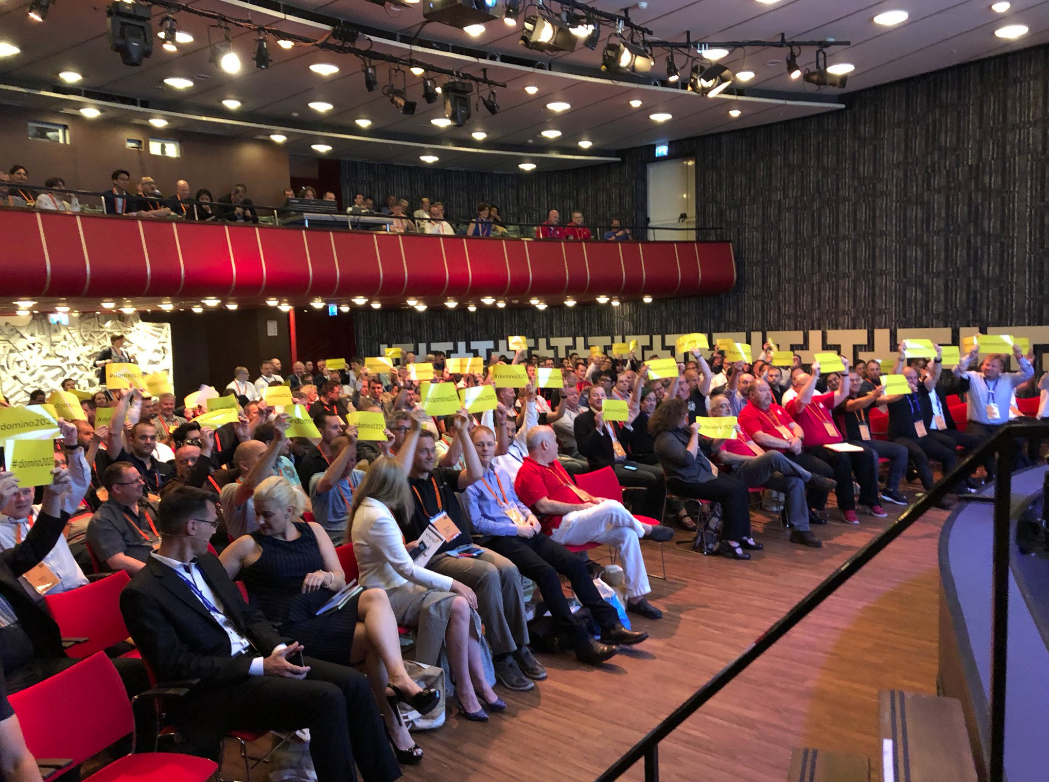
New announcements:
HCL Nomad
Most promising was the presentation by Andrew Davis showcasing Nomad, which is a Notes Client running on an iPad. He demoed the current version, which only works online. They are working on improving the controls (dropdowns, checklists etc.) to work on a touchscreen, and that seemed to be working well. Links (doclinks, database links) are working.
The next necessary step is making Nomad work offline, which would imply implementing the replication engine, but also implementing a local full text indexing. I imagine that that will be challenging. Promising, also, is the extension of LotusScript to be able to access the mobile devices’ goodies such as cameras, location.
I can see a good use case for field service workers who need a fully offline machine, and I can also imagine this would be a very easy way to surface pure Notes Client applications to the iPad with very little cost (since the codebase must not be modified).
I’m not convinced with the attempt to make Notes applications work on the iPhone, the format is just not compatible with the existing application layouts.

Andrew Davis showing how Node.js will be integrated into the Domino stack – architecturally elegant, methinks.
HCL Places
A surprise was Jason Gary’s prototype demonstration of ‘HCL Places’, an universal integrated chatclient/Notes Client which would run in a single application, with data storage on the Domino server. It’s one of those products that HCL can market independently. Looks promising, but probably needs a lot of work for it to fly.
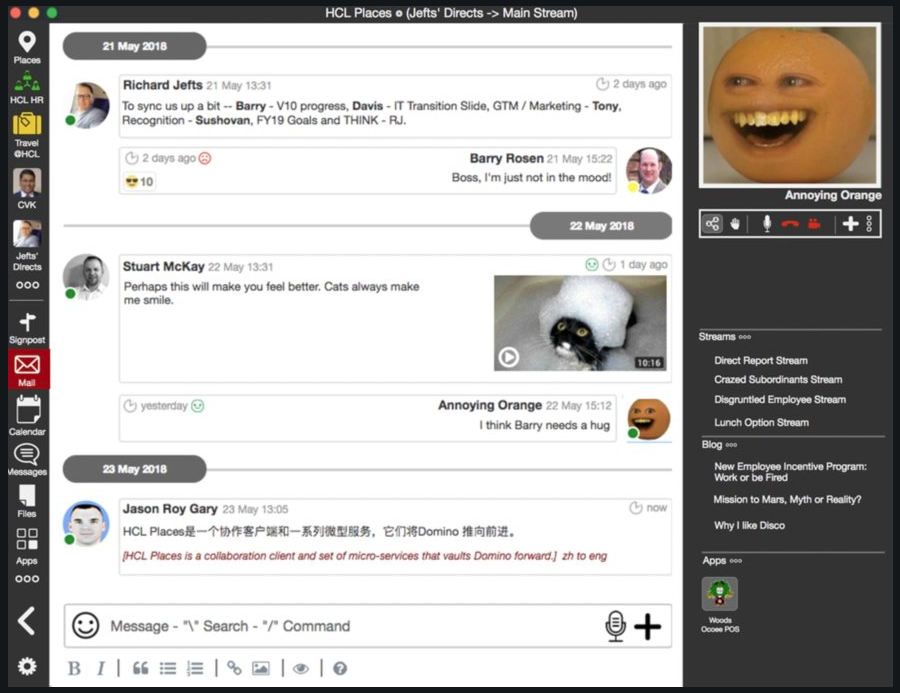
Notes Client:
Ram Krishnamurthy showed some of the new changes in the Notes Client. I found most of them small incremental UI changes. The Workspace is getting a makeover, and I hope that what was shown is not the latest offering – the spacing of the tiles was all wrong in my opinion.
The real improvements was the decision to merge both mac and Windows codebases for the client (presumably as a result of high mac usage within IBM) and the simultaneous release of all codebases (including Sametime, which caused much of the headaches of Domino 9.01FP10). Both these changes should improve the quality of the delivery.
As a side note, it’s interesting that both HCL Places and Nomad are integrating the ‘pure’ C++ Notes client. This reinforces my feeling that there is true beauty and robustness in the ‘small’, ‘basic’ client, and that the 2008 revamp using Eclipse RCP is just a flaky, clumsy abomination whose costs (slowness, size, difficulty to configure, architecture breaks) are not compensated by its advantages. HCL announced they would sunset unused functionalities, and that is welcome. Hogne B. Pettersen suggested to ditch the RCP implementation entirely, and I secretly cheered.
XPages:
some small improvements announced, but I think it’s clear XPages are a dead end.
New interesting technologies and skills:
Of particular interest was Knut Herrmann and Paul Harrison’s session on Progressive Web applications, an easy way to adapt a web application so that it behaves like a native mobile app, without the hassle of passing it through the testing of an app store.
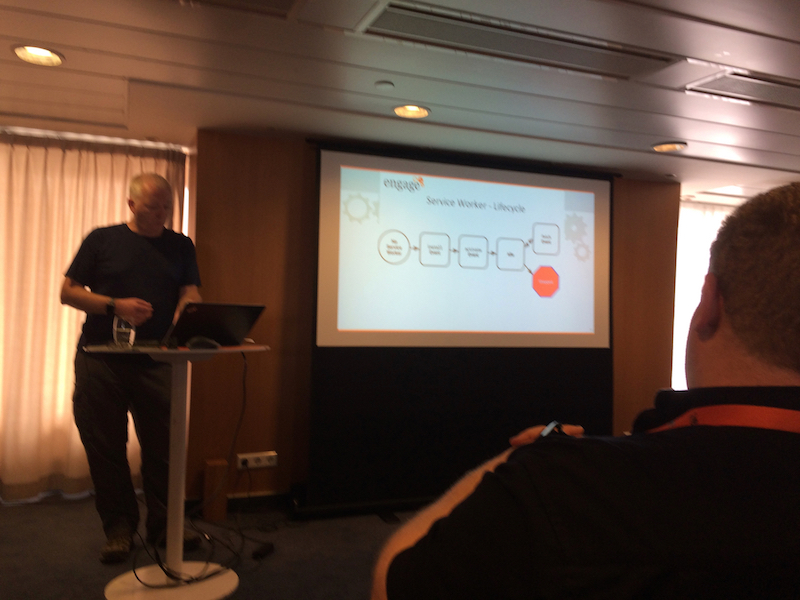
Also fascinating was Paul Withers’ and John Jardin’s session ‘Domino and Javascript Development Master Class’. Node.RED is definitely a technology I’d like to look in. As a tip, Paul suggested making REST Tests directly with Node.RED, and not with Postman, for instance. And Node.RED is an easy way to deliver scheduled actions.
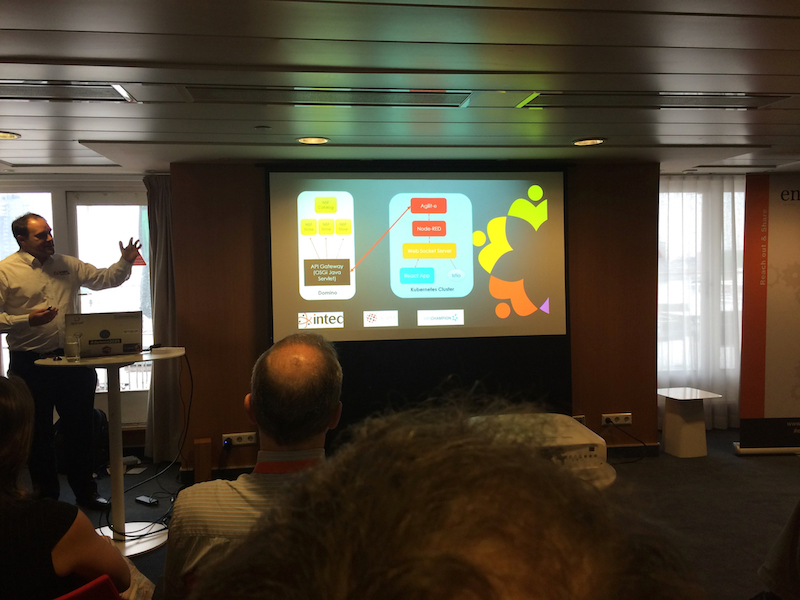
People
Most enjoyable is that Engage is meeting the community. Probably because of the long history of the platform, real ties of friendship make this community special, much more than any of the other gatherings I’ve attended over the past years. There is always somebody who can help!
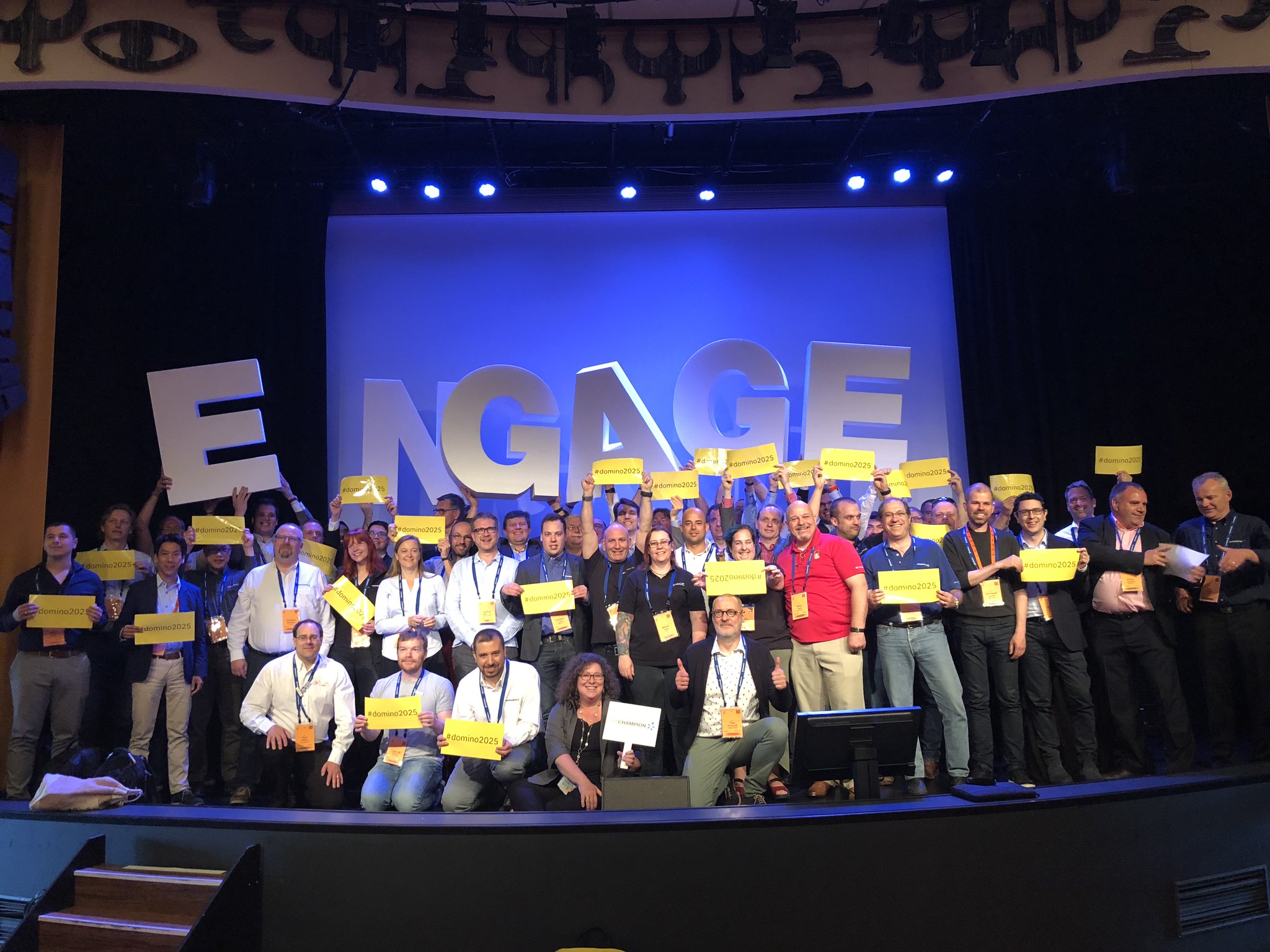
IBM Champions on stage
Can HCL deliver?
That’s the crucial question. Whereas I am impressed by the new team’s vision and obvious energy, my gut feeling is that they are overambitious and risk underdelivering. Jason Gary mentioned ‘we’re just like a startup’, which made me wince since in this space, with a large legacy codebase, you don’t have the luxury of a green field. The risk I see is V10 breaking existing functionality, which would be fatal.
During questions and answers I asked Richard Jefts: ‘who was responsible for the Notes 9.01FP10 release?’, as the quality assurance on that release was sub-par. Richard took it on the chin, to his credit, assumed responsibility, and told us that a separate QA post had been created to avoid this happening again. There again, the risk here is delivering under time pressure a software product that isn’t sufficiently tested.
Thanks to the Engage Team and the sponsors
Theo Heselmans made a sterling job of organising the event, as usual, and the venue was particularly well suited. The venue was the spectacular SS Rotterdam, a permanently moored cruise ship. The sessions were in the ship, we slept and ate in the ship. Many thanks to the sponsors which makes this event possible, and free!

On a personal note, the gods of luck were with me and I won two the two prizes that tickled my fancy: a LEGO set from OnTime and a Raspberry Pi housed in a BBC Micro B housing from LDC Via. Awesome!
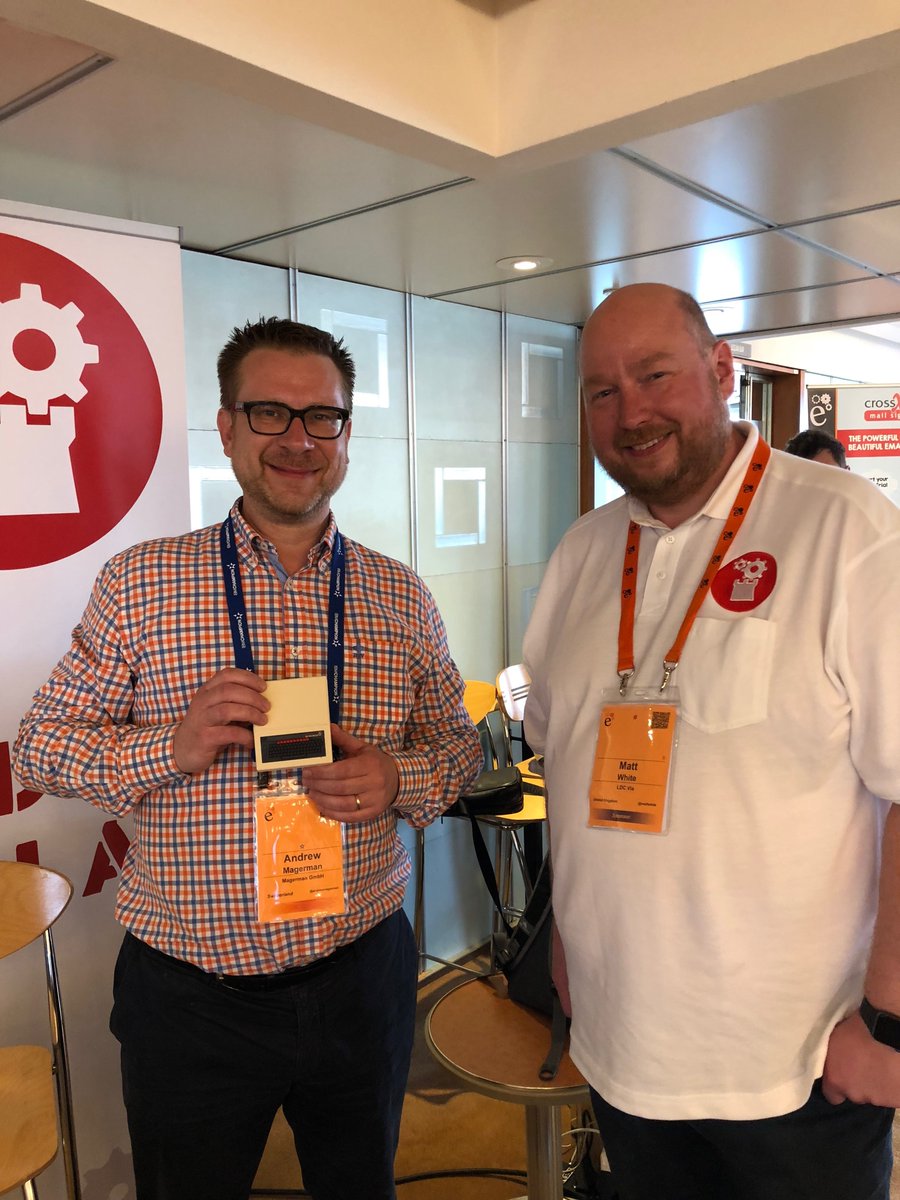
Matt White from LDC Via presenting me with their awesome giveaway – a Raspberry Pi housed in a BBC Micro B
Spot on summary, I agree with all your points. I’m currently writing my own summary.
Hi Hogne, thanks! Your comment made me think of a question you asked, so I’ve added a new paragraph:
As a side note, it’s interesting that both HCL Places and Nomad are integrating the ‘pure’ C++ Notes client. This reinforces my feeling that there is true beauty and robustness in the ‘small’, ‘basic’ client, and that the 2008 revamp using Eclipse RCP is just a flaky, clumsy abomination whose costs (slowness, size, difficulty to configure, architecture breaks) are not compensated by its advantages. HCL announced they would sunset unused functionalities, and that is welcome. Hogne B. Pettersen suggested to ditch the RCP implementation entirely, and I secretly cheered.
Hi Andrew,
excellent summary. 🙂
I just would like to add one aspect. From my point of view is the integration of node.js an extremely clever move. Not only opens the integration the use of a whole eco system of open source applications.
It also gives HCL the chance for a few “quick” wins in regard of missing capabilities for the web server. Jason Gary mentioned thinks like HTTP/2. I could imagine that implementing this on the existing Domino http task would take time. If implemented via node.js tunneling the request to the Domino http task this could be solved much easier.
Dear Bernd, you’re right of course! I omitted it because Jason presented this in detail at SNoUG, so it was ‘old news’ in my eyes. But you are right, it’s going to be super for integrating with all the new cool JS Front-Ends.
Bernd, I also wanted to add that one of the aspects of the new web-facing architecture is that most of it is standardized out-of-the-box Open Source projects. The only bit that needs some long work is the gRPC connector to Domino. I imagine that this can be improved incrementally, too, and doesn’t need to implement NRPC. I can imagine some calls for data (readdocument, readview), some authentication calls, perhaps later Calendaring/Scheduling calls.